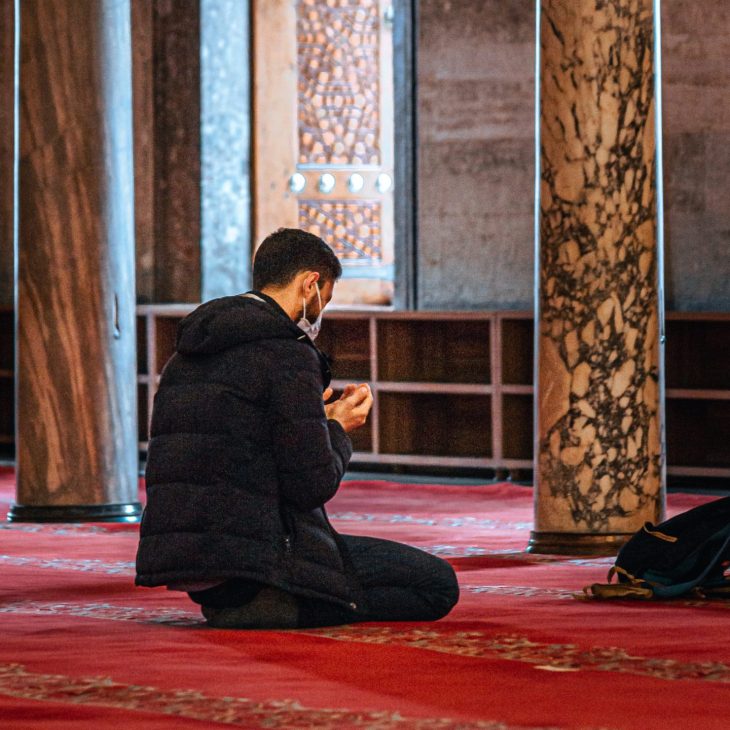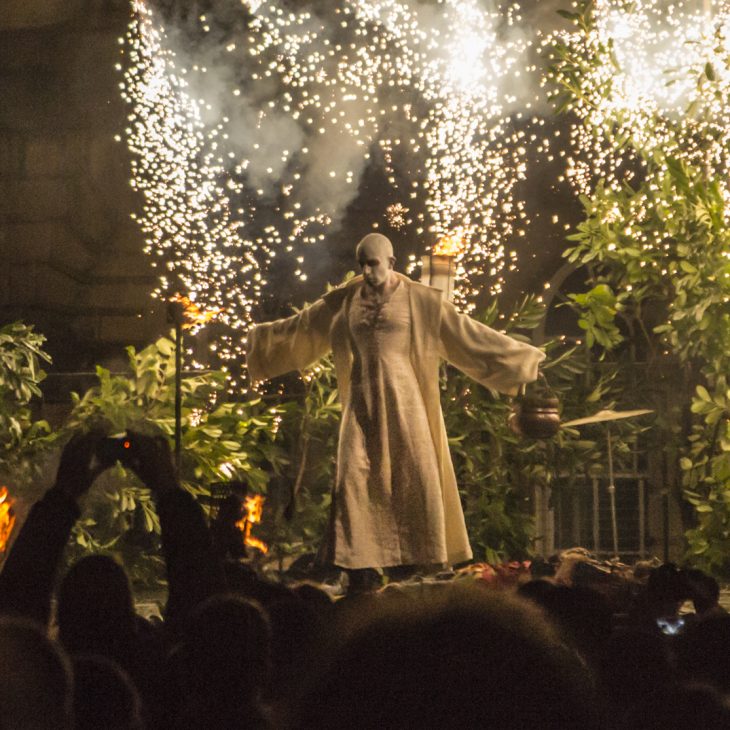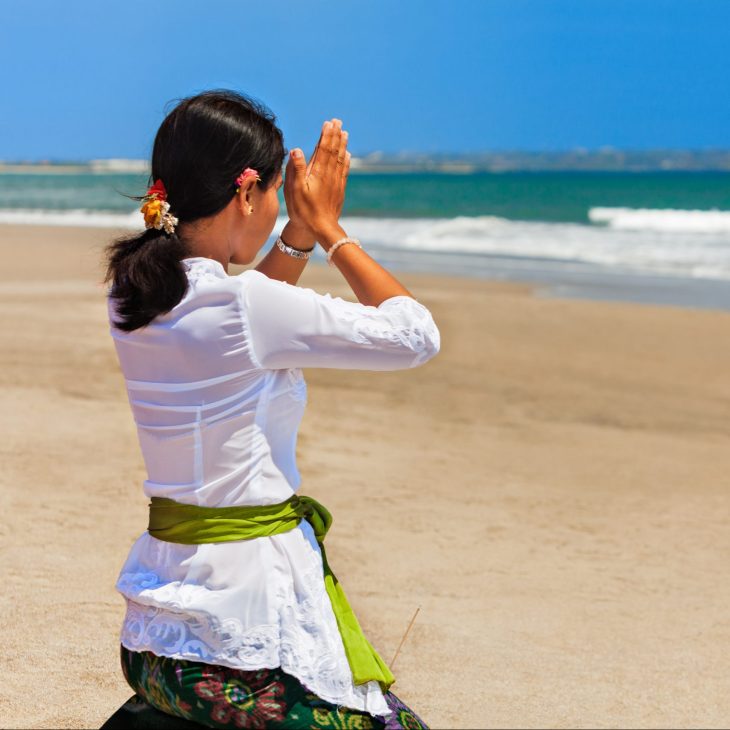Tool
Traditions’ knowledge on the importance of rest
An exploration of various traditions’ theology and practices around rest.
Our body and mind have the capacity to heal themselves if we allow them to rest. Stopping, calming, and resting are preconditions for healing. If we cannot stop, the course of our destruction will just continue.
– Thich Nhat Hanh, Buddhist monk and teacher Tweet
Over the past century, Americans report being progressively more stressed out. The COVID-19 pandemic and associated economic struggles have brought this concerning trend to a head. The American Psychological Association reported that at the end of 2022, more than a quarter of US adults said they were too stressed to function. Young adults are even more likely than their predecessors to report stress due to finances, work, and national issues.
It should come as no surprise that Americans are deprioritizing rest amid their stressful lives. After all, who has time to relax?
While resting may not be able to change systems or life circumstances, it is a powerful coping mechanism to support human flourishing. Scientists now validate what human traditions have know for thousands of years: we have to rest.
In this resource, you will find a non-exhaustive exploration of various traditions’ theology and practices around rest. This is not an exhortation to adopt another religion’s practice. Rather, it is an invitation to consider a variety of religious perspectives on rest and reflect on the inspiration that they offer. Please read, discover, and take some time for introspection on your own values and the appreciative knowledge you can draw from the traditions presented here.
God has created Friday for purity and pleasantness, and the resting of His servants from what they undertake on other days
– The Báb, Persian Bayan, Vahid 7, 17 Tweet
Days of rest
Many traditions set aside a regular day to disengage from daily tasks and connect with each other and our traditions. Here are just a few ways in which different religions offer their adherents a periodic respite.

Shabbat
In Judaism, the 25 hours after sundown on every Friday is considered to be set aside for rest. Shabbat’s origins date to the ten commandments, when it was commanded that no one should engage in work on the 7th day. There are 39 different types of work that are not to be performed and rituals to keep the day holy. Many Jews recite Kiddush (a special blessing often said over wine) to begin the sabbath and attend services on Saturday morning. As with all religions, customs and observance are as unique as individual believers. Some choose to forgo driving, technology, carrying things outside their homes, cooking, and other types of prohibited work every week. Others enjoy a shabbat meal on Friday evening and make sure to avoid work conflicts on Saturdays. While the Shabbat experience differs greatly between communities and individuals, it remains an integral part of renewal within the Jewish community.
Jum’ah
In Islam, Friday (or Jum’ah) is a day for gathering. While observant Muslims pray five times every day, the midday prayer on Friday is often said at the mosque with other believers. Friday is included in the weekend in many countries with significant Muslim populations so that believers can easily attend services. This day of respite emphasizes togetherness and community for Muslim believers.


Christian Sabbath
Christian denominations have many different ways of honoring a weekly sabbath. The Seventh Day Adventists recognize it on Saturday. Many Orthodox Christians recognize Saturday as a Sabbath day for remembrance and Sunday as the Lord’s day. Most other traditions and denominations keep Sunday as a day of rest. Regardless of which day is celebrated, Christians often attend religious services and spend time with family on the sabbath. Catholics view attending mass on Sundays as a sacred obligation. Quakers travel to a meetinghouse to sit together in silence and listen for the voice of God. Many protestant denominations meet on Sundays for worship, sermons, religious education, and fellowship. While practice varies widely, Christians around the world maintain a day of the week to revitalize their relationship with God.
Uposatha
While Buddhists do not have a weekly day of rest, many monasteries and lay people observe Uposatha, a periodic day of renewal. These days are determined by the Lunar calendar and generally occur about once every two weeks. On these days, work at monasteries ceases so that monks and nuns can take time to rededicate themselves to practice. Lay people take it as an opportunity to observe principles of Buddhist practice and make visits to monasteries for worship and sermons.

Hsi Lai Temple in Los Angeles, California

The Church of Jesus Christ of Latter-day Saints Temple in Glenview, Illinois
Latter Day Saints’ Sabbath
On Sundays, members of the Church of Jesus Christ Latter Day Saints often go to church to celebrate the sabbath. They take the day off from all secular work and focus on their families and church communities. Many adherents also do not shop on Sundays, as they believe that all workers should be able to spend this day of rest with their families and don’t want their business to be a reason why someone cannot rest.
On the seventh day God finished the work… and ceased from all the work … and God blessed the seventh day and declared it holy, because on it God ceased from all the work of creation…
– Genesis 2:2-3 Tweet
Holidays
Traditions everywhere celebrate holidays marking special occasions or events. Most holidays involve a suspension of normal work and time spent with family and community. However, some holidays place a particular emphasis on rest to keep the balance between work and relaxation. Below are a couple of examples.
Samhain
Many Wiccans and Pagans celebrate annual festivals marking the passage of time. This is known as the “Wheel of the Year” and includes holidays for solstices, equinoxes, and other significant events in the natural world. Throughout the year, natural cycles of life and death are honored. Samhain, celebrated October 31st-Novemeber 1st in the northern hemisphere, formally honors death. At this time, the crops are harvested and the earth is at rest as humans prepare for winter. It marks the beginning of a fallow period that will last until the days begin to lengthen again during the winter solstice. It serves as a natural counterbalance to the spring and summer festivals celebrating light, fertility, and productivity. Samhain is the most visible pagan holiday as many people celebrate elements of this festival during Halloween. This practice serves to remind adherents that everything ought to remain in balance, including productivity and rest.

Edinburgh, UK – October 31, 2013: After a torchlit procession through Edinburgh to celebrate the pagan festival of Samhuinn, or Samhain, the Beltane Fire Society perform the triumph of winter over summer and celebrate the changing of the seasons before crowds of thousands in the street in front of St Giles Cathedral.

Balinese women praying on beach at ceremony before silence day Nyepi.
Nyepi
Hindus celebrate new years’ day, known as Ugadi among other names, with great fanfare. The day occurs once a year and the exact date is determined by a lunisolar calendar. Before Ugadi, many Indonesian Hindus celebrate Nyepi, or the day of silence. On this day, human and vehicle traffic is disallowed. The streets fall silent as people retreat to their homes for quiet and introspection. In Bali, even the internet is shut down. Observant Hindus fast and meditate, and their neighbors refrain from travel, commerce, or loud activities out of respect. In the chaos of New Year’s festivities, Nyepi provides Balinese Hindus with a yearly day of respite.
Mindfulness
Traditions from across the world prioritize introspection, reflection, and presence. Consider a few of these approaches to meditation:
Buddhist Meditation
While meditation is found in many religious practices, it is an essential part of the Buddhist tradition. Buddhists have developed several types that cultivate different mindsets and intentions. For example, Metta or lovingkindness meditation focuses on goodwill, Tonglen meditation focuses on emanating goodwill while taking on the suffering of others, and Vipassana or insight meditation in which practitioners observe what is and seek to retrain the mind. There are other types of meditation that include walking, chanting, and other practices that seek to quiet the mind for spiritual reasons. Whether it’s a few minutes of mindfulness meditation or a multi-day retreat, meditation is proven to have mental and physical health benefits including reduction of stress, pain, insomnia, and high blood pressure.


St John’s Church, Glastonbury, Somerset, England
Labyrinths
Thousands of years ago, Christians adopted the originally pagan practice of walking a labyrinth as a way to actively meditate. Unlike a walking meditation, a labyrinth is a circular path walked slowly so that the participant can focus on internal thoughts, prayers, or scripture instead of focusing on where to go or when to turn back. Many Christians invite God to walk the labyrinth with them, choose a Bible verse or prayer on which to meditate, and walk around the circle slowly as they meditate on their thoughts and their relationship with God. While this practice is important in some kinds of Christianity, it can be easily recreated with a circular walk in a garden, a pen and paper, or even a virtual labyrinth that encourages you to take a moment for thoughts while working on the computer.
Paradise is a state of rest
– Alma 40:12- Book of Mormon Tweet
Reading
In addition to reading for leisure or spiritual connections, some traditions have ways of connecting with religious texts that are meant to strengthen understanding of holy texts while allowing an outlet for mental rest.
Lectio Divina
Lectio Divina is a Christian practice in which a reader focuses on a single passage of text. First, the text is read several times so that the participant can absorb its meaning. Then, the reader reflects on the passage and what parts of it speak to them. The reader then takes a few minutes to respond to the passage through journalling, prayer, or speech. After their response, the reader takes some time to rest, contemplating the passage, their interpretation of it, and their response. While Lectio Divina is often used to contemplate passages of scripture, the method of deep reading, reflection, response, and restful contemplation can be used for a wide variety of meaningful writings. The practice provides an opportunity for readers to encounter texts in new ways and take some time out of their schedules to contemplate what’s most important to them.


Dhikr
Dhikr, meaning remembrance, is a Muslim practice that involves remembering the names of God and passages from the Hadith. Many Muslims recite important verses and exaltation of Allah when they have a free moment, often counting them on fingers or prayer beads. Beyond simply remembering the words of these important texts, Dhikr serves to focus the adherent’s mind on the importance of God and eternity as opposed to on the mundane. It cultivates devotion and provides mental rest in the form of worship.
Come to me, all you who are weary and burdened, and I will give you rest.
– Matthew 11:28-30 Tweet
Reflection Questions
- What rest practices were present during your upbringing or religious tradition? (e.g. a day off, a weekly meal, a yearly holiday)
- What did they emphasize? (e.g., family, religious practice, community, relaxation, not participating in work)
- What rest practices do you engage in now?
- How are your rest practices similar to those in other traditions? How do they differ?
- If a friend came to you saying that they were burnt out and asked for your advice to feel more relaxed, what practices would you suggest to them?